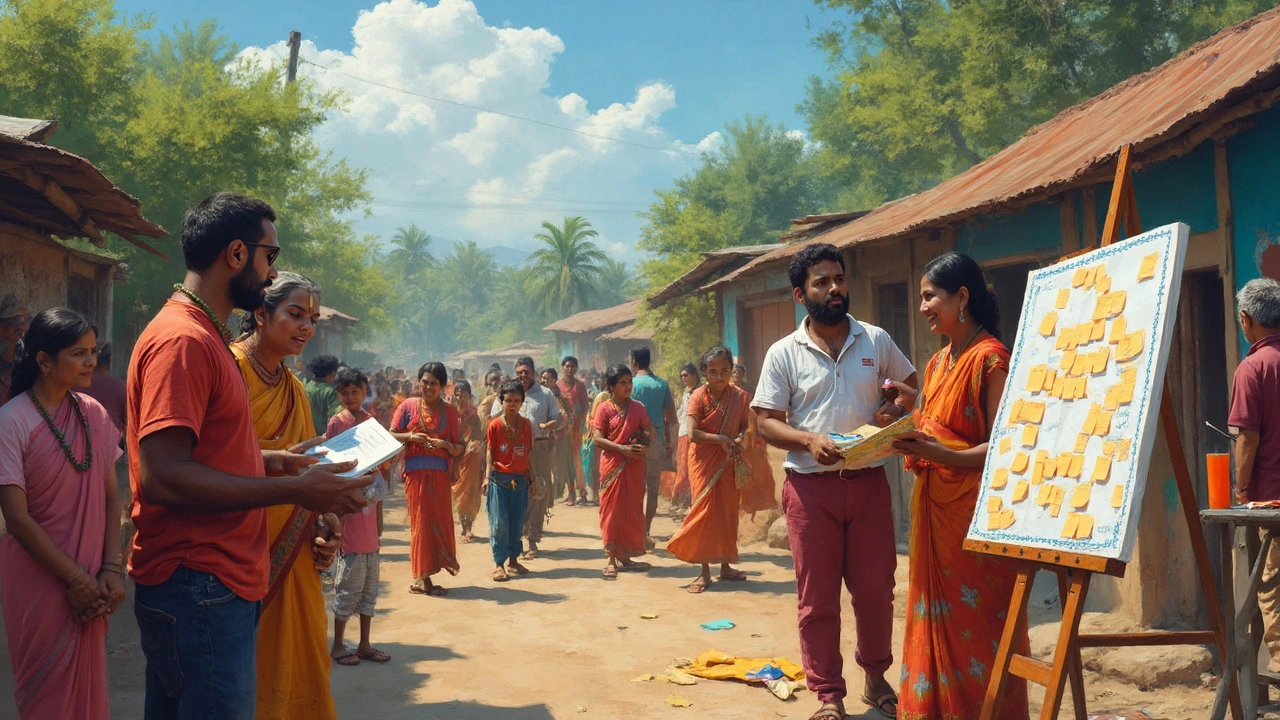Roles in Community Service: Find Your Perfect Spot
Ever wonder which role suits you best when you join a church group, a charity shop, or a youth club? The answer isn’t one‑size‑fits‑all. Every organization needs a mix of helpers – from front‑line volunteers to behind‑the‑scenes planners – and each role brings its own rewards.
Front‑Line Roles: Direct Impact
If you love face‑to‑face interaction, front‑line roles are where the action happens. Think of helping shoppers in a charity shop, handing out meals at a soup kitchen, or leading a kids' after‑school club. These positions let you see the results of your work instantly – a smile from a child, a grateful thank‑you from a senior, or a tidy shelf that makes a donation easier.
Front‑line work also builds soft skills fast. You’ll improve communication, learn to solve problems on the fly, and get a real feel for the community’s needs. No fancy training required – just a willingness to show up and help.
Behind‑The‑Scenes Roles: Planning and Support
Not everyone thrives in the spotlight, and that’s okay. Behind‑the‑scenes roles handle the logistics that keep a project running. This could be organizing a fundraiser timetable, managing volunteer schedules, or handling social‑media posts for a club.
These tasks often involve more detail work, like tracking budgets or drafting event flyers. You’ll develop project‑management chops, learn about compliance (like why volunteers don’t get paid), and become the glue that holds everything together.
Both front‑line and behind‑the‑scenes roles need clear expectations. A good organization will describe each role’s duties, the time commitment, and any training needed. That way you know exactly what you’re signing up for.
Choosing the right role starts with honest self‑assessment. Do you enjoy meeting new people and seeing immediate results? Go front‑line. Prefer planning, spreadsheets, and a bit of quiet time? Look behind the scenes. You can also blend both – many clubs let you rotate duties each month, giving you a balanced experience.
One practical tip: ask the group leader for a short role description before you start. It helps you avoid surprises and shows you’re serious about contributing.
Remember, every role matters. A well‑run fundraiser fails without a solid timeline, and a charity shop stalls without friendly greeters. By picking a role that matches your strengths and interests, you’ll stay motivated, learn new skills, and make a real difference in the Varanasi Diocese community.

Understanding Essential Roles in Community Outreach
- Mar, 9 2025
- 0
Community outreach hinges on teamwork, involving roles that range from planning and volunteer coordination to hands-on engagement. This article sheds light on the different roles involved in effective outreach programs. Learn how each role contributes to the success of community initiatives with practical examples and tips for those looking to get involved.
Categories
- Volunteering (40)
- Environment (38)
- Youth Programs (34)
- Charity Events (31)
- Homelessness (31)
- Community Outreach (29)
- Charitable Organizations (27)
- Community Support (18)
- Finance (14)
- Education (10)
Archives
- February 2026 (6)
- January 2026 (7)
- December 2025 (10)
- November 2025 (8)
- October 2025 (23)
- September 2025 (4)
- August 2025 (8)
- July 2025 (31)
- June 2025 (29)
- May 2025 (30)
- April 2025 (31)
- March 2025 (30)
- community outreach
- charity events
- after-school clubs
- community service
- charitable trust
- philanthropy
- volunteering
- homeless shelters
- environmental groups
- community engagement
- volunteer opportunities
- charitable giving
- estate planning
- mental health
- charity
- student engagement
- community help
- donations
- volunteer
- youth organizations